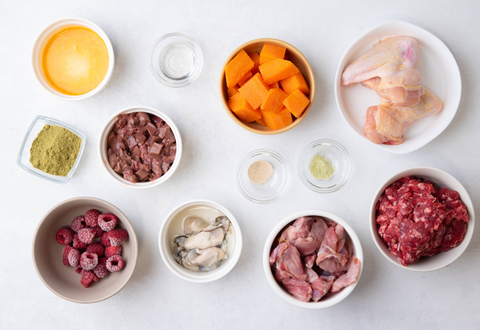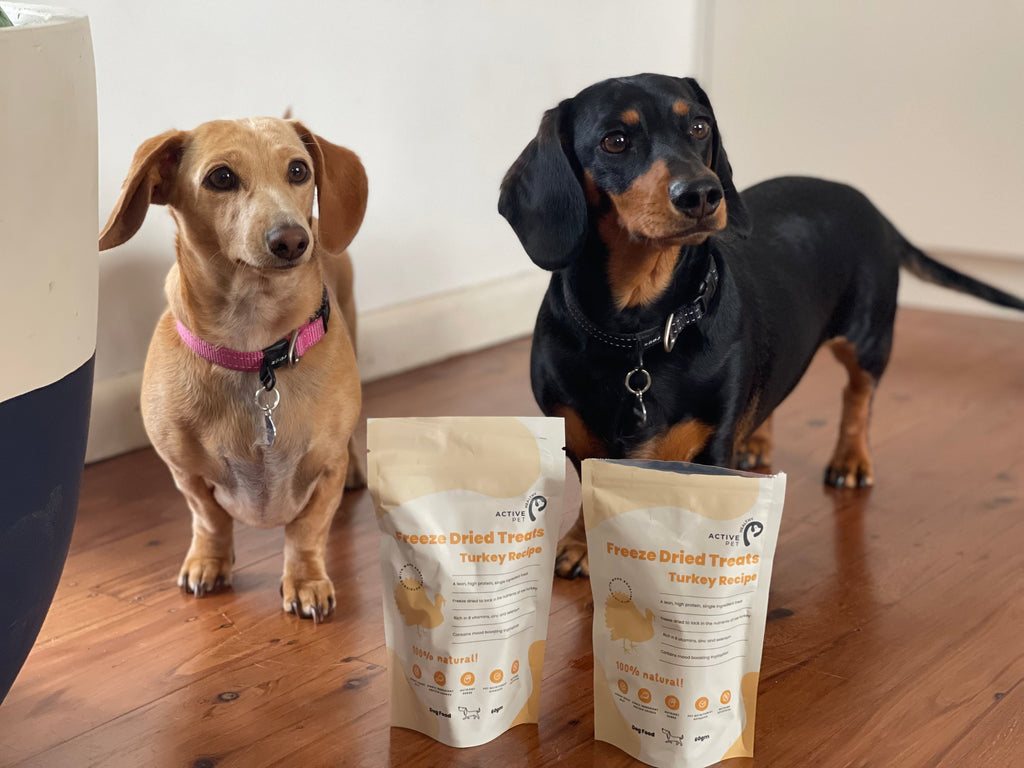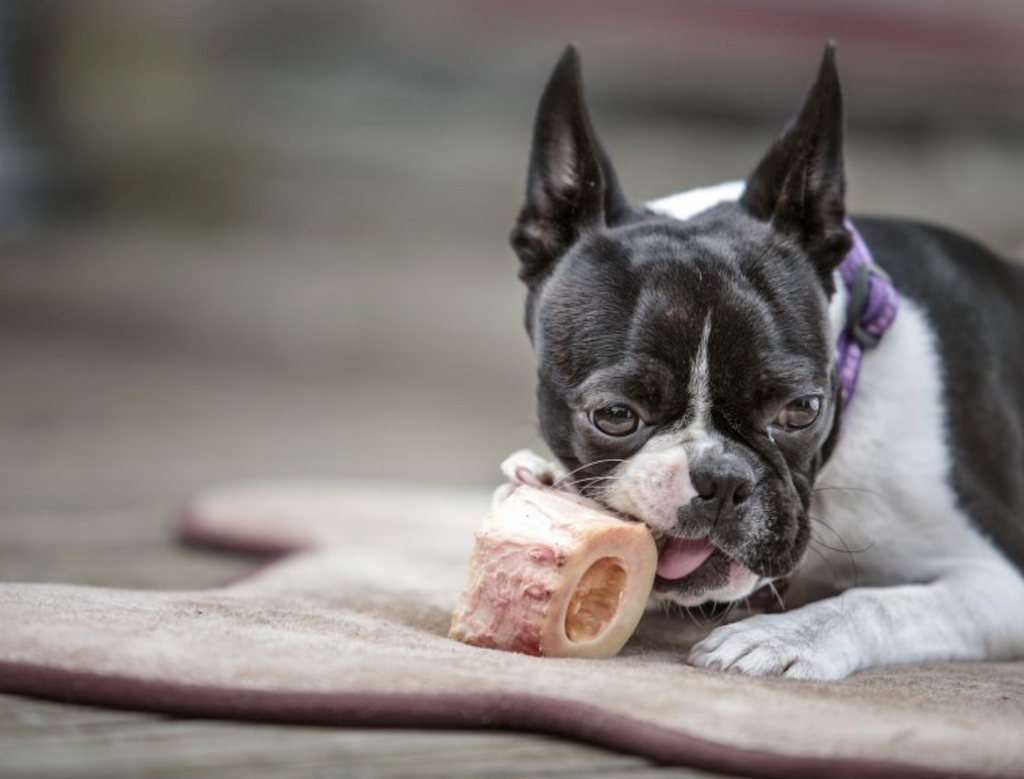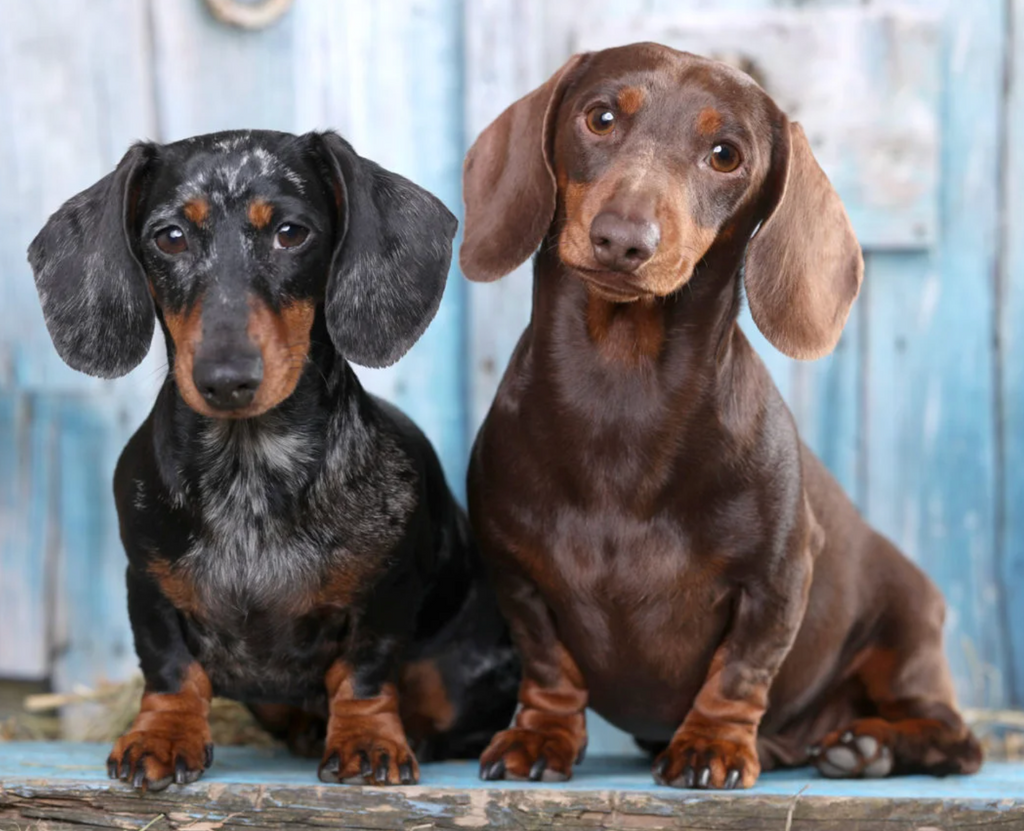
5 Dog Breeds That are Most Likely to be Overweight
If a dog weighs 15-20% or more above their healthy body weight they are considered overweight.
The truth is, any dog who overindulges and doesn’t exercise enough can gain weight over time – but there are indeed some dog breeds that are simply naturally more predisposed to weight gain than others.
A recent veterinary study (2021) from the Royal Veterinary College confirmed this fact after a comparing the health and weight of thousands of dogs.
The same dog breeds appeared over and over again as overweight. We have overviewed 5 dog breeds below that are more likely to be overweight:
1) PUGS
Pugs are considered by veterinary professionals to have a three times larger risk of being overweight.
PUG DOG BEHAVIOUR
Pugs were originally bred and favoured in high society across China and Europe because they didn’t bark and were the ideal size to sit on a lap and be carried.
This life of luxury suits the most modern pugs very well too – behaviourally, they tend to naturally prefer to relax and nap, and are less inclined to exercise. They need motivation here from their owners to avoid weight gain!
PUG GENETICS & BUILD
Originally, pugs were longer and leaner, but many years of breeding has resulted in modern pugs having more of a compact, short, stout appearance.

The pug’s distinctive short snout means breathing is more difficult compared to other breeds. They also need to work harder to regulate their temperature (cooling down) and expend more energy when exercising.
Paired with their little legs, each step for a larger dog is a lot more work for a pug! The best way to overcome this is shorter, more regular daily walks (around 25 minutes daily) in comfortable temperatures. A balanced diet is also important with pugs, as overfeeding in pugs leads to weight gain quickly!
2) BEAGLES
Studies indicate Beagles are more than twice as likely to be at a higher risk of weight gain than other dog breeds!

PERSONALITY
Although they are quite active, veterinary research states most Beagles are incredibly food motivated. Beagle owners will know firsthand that they are not picky eaters and can be scavengers; howling for treats and even seeking out food scraps with their keen nose.
EXERCISE REQUIREMENTS
Although they have a small, compact build, Beagles are quite active (they descend from hunting dogs after all). Low impact, daily exercise and a balanced, consistent meal plan can help avoid weight gain and dog obesity.
Experts suggest trying enrichment exercises in moderation as a good compromise for their appetites. Make them work for their treats by cutting a dog treat into several smaller portions. Hide these for your Beagle to seek out over a longer period of time. Pair this with around an hour a day of exercise and playtime (fetch) to help them keep in shape.
3) LABRADOR RETRIEVERS
Labradors are a large dog breed (reaching up to 36kg and 62cm high), and love to eat, but canine scientists now know part of this is genetics.

Over 20% of all Labradors carry a mutant form of a gene (called POMC) that limits a Labradors’ ability to know when they are full. This in turn causes them to want more food than is needed and increases their chance of gaining weight (usually making them around 1.9kg heavier).
LABRADOR WEIGHT MANAGEMENT NEEDS
Despite their appetites, Labradors are an energetic breed and have always enjoyed being task oriented, busy and helpful.
They require more athletic attention and mental stimulation to stay happy and avoid unhealthy weight gain. The good news is, because they love this, it’s easy to maintain their condition and reverse weight gain by taking them for walks or runs for at least an hour of a day.
4) GOLDEN RETRIEVERS
Similarly to Labrador Retrievers, Golden Retrievers have a great love of food, and are a breed that are at higher risk for being overweight because of it.

GOLDEN RETRIEVER HEALTH & WEIGHT
It’s not just their love of food that can lead to weight gain; some Goldens also have a predisposition to hypothyroidism (hormones imbalance’s that can impact weight gain).
Veterinary experts suggest following a meal plan for a Golden Retriever’s recommend healthy weight rather than their current weight if they are overweight.
They also need sufficient exercise and daily active to keep them from boredom and over eating or “requesting” more food. At least an hour daily of outdoor exercise is essential to keep them in tip top shape.
Like their name implies, you can also keep them busy “retrieving”. Try letting them help bring you laundry items or spread their toys around the house for “collection”.
5) DACHSCHUNDS
Dachshund’s may be nicknamed “sausage dogs” – but their propensity to weight gain usually comes from their genetic build more than their love of food.

DACHSCHUND SIZE & SHAPE
The unique form of Dachshunds, with long bodies and short legs is undoubtedly adorable, but has a downside.
According to research from the Royal Veterinary College, 25% of Dachshund’s are at risk for intervertebral disc disorder.
Being overweight makes this more likely, and precautions should be taken where possible to avoid overfeeding.
Because Dachshund’s are more likely to suffer from this injury, they are more likely to gain weight as a result since exercising becomes more difficult or painful.
DACHSCHUND EXERCISE WEIGHT MANAGEMENT PLAN
It’s important to try to avoid weight gain in this breed in particular because it places extra strain on their little legs (joints and bones) and spine.
To help your Dachshund avoid injury and stay in shape you can use ramps where possible (e.g., to get onto a chair or in the car) and try to limit your Dachshund from jumping or climbing.
Long walks and high intensity exercise should be avoided, and instead swap this for shorter and frequent walks on flat terrain. Dachshund’s also love chasing and fetching balls and sticks!
Next steps if your pup is overweight
Simple dietary changes and increased movement can make a world of difference in avoiding having an overweight dog you can enjoy as your companion for longer! You can check out our weight management dog raw & air dried food here
If you are concerned your dog may be overweight or obese, take a look at our 4 week programs
As part of the program, you will receive exclusive access to our pet nutritionist meal plans and recipes personalised for your dogs needs
- Healthy Active Pet makes home cooking for dogs and cats easy, safe - and tasty
- Created by pet nutritionists for excellent nutrition & result
- Includes recipes & meal plans for dog weight management, dog performance & nutrition, sensitive dog and cat weight management
- Easy home-cooking recipes, personalised for your dog and cat, plus feeding guide
- All recipes have been formulated to meet the AAFCO standards




